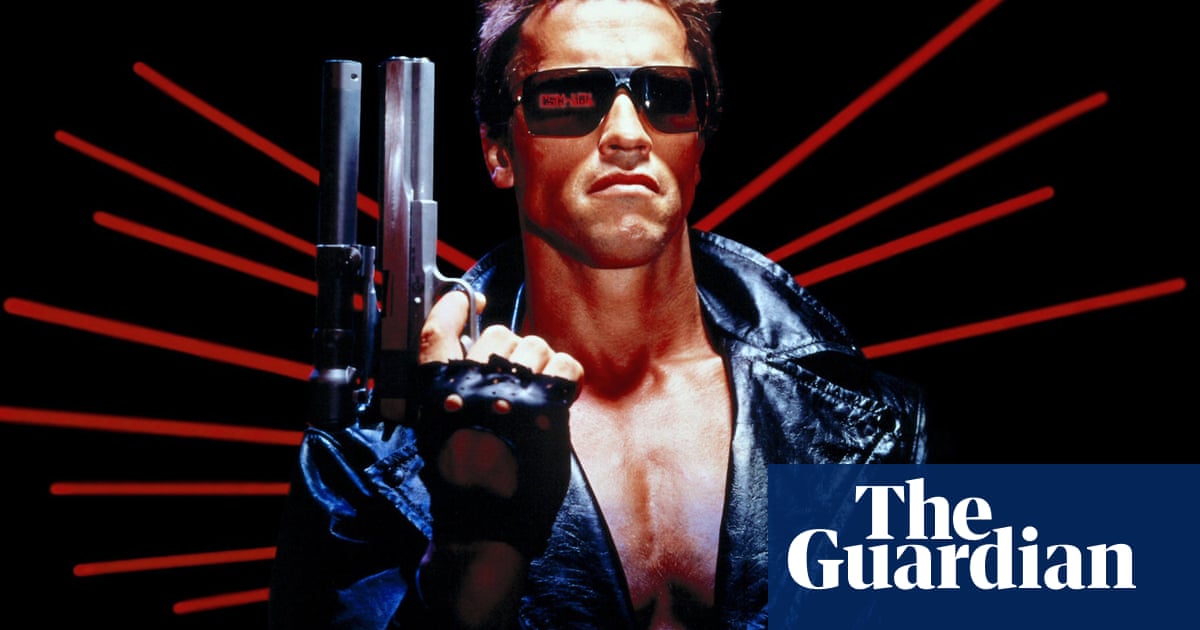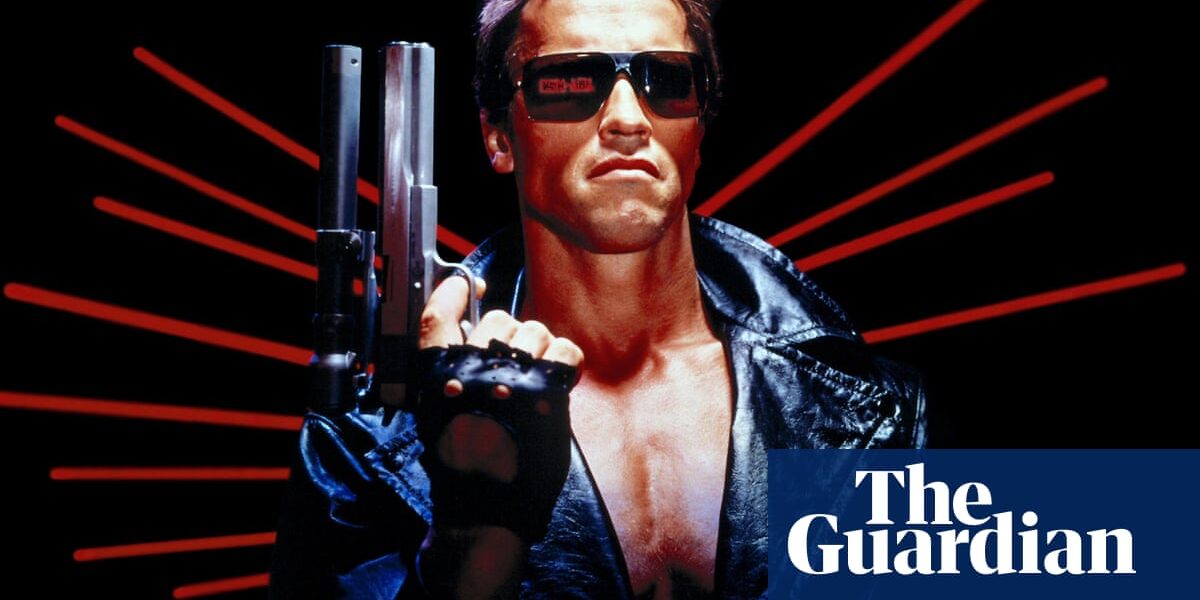
There is, it seems, an unwritten law in the world of artificial intelligence, which I will attempt to distil here: “Any discussion of AI must include an early and robust reference to the Terminator”. Though the 1984 James Cameron film and its 1991 sequel are quite good, here are two equally made-up but probably mostly true facts: no one under the age of 30 has seen either film and, in any case, neither film has anything particularly insightful to say about AI. But here we are, and the relentless analyses of the moment we are in – where we apparently stand on precipices of revolutions, ushering in utopia or the apocalypse – tend to be written by men who have seen Arnold Schwarzenegger’s Terminator failing to assassinate Sarah Connor many times over. If you can also allude to biblical creation, then you’re winning at AI bingo.
AI expert Neil Lawrence springs both traps on page one of his new book, The Atomic Human, and fulfilling the promise of the Terminator’s most quoted line (“I’ll be back”), the film makes a further 15 appearances. Lawrence doesn’t reference the more recent Ex Machina, Alex Garland’s 2014 AI film (that I, full disclosure, had a minor role in creating) which explicitly mocks techbro Silicon Valley arrogance: a Mark Zuckerberg/Elon Musk-like CEO hubristically misquotes a comment made about the creation myth of his own artificially intelligent robot: “If I’ve invented a machine with consciousness, I’m not a man, I’m a God.”
I wonder if we are in a unique moment in history when the discourse is shaped so significantly by the fiction that the men who are in charge of these domains consumed as nerdy youths. Last month it was revealed that Sam Altman, the controversial figure behind OpenAI had asked the actor Scarlett Johansson to voice the latest incarnation of their ChatGPT interface, emulating her role as the AI personal assistant in the 2013 film Her. Johansson declined, but Altman allegedly used a soundalike actor or possibly an artificial Johansson voice anyway. In May, apparently too arrogant (or rich) to bother hiding his deed, Altman tweeted the single word, “her”. Hubris 1: Ethics nil.
We understand big ideas through storytelling. Much has been made of humans as storytelling machines, and Lawrence embraces this mode of science communication with gusto. He indulges us with the Bletchley Park saga, Alan Turing’s brilliance and details of the strategies and technologies of the second world war, in enjoyably exploring ideas of intelligence and how computers can or don’t emulate human cognition. In a chapter called Enlightenment, we veer from Great Man classic tales of Isaac Newton, Winston Churchill and Stephen Hawking, down a cul-de-sac visiting William Blake and Michelangelo, then to Lewis Carroll and Bertrand Russell, and all the way to Elon Musk, via many more.
It says on the press release for The Atomic Human that “the voices of women in AI get overshadowed”. I scanned the index and found that 15 women are named in this 448-page book (16 if you count the goddess Hera), as well as the mention of two groups of anonymous women (Royal Navy Wrens, and the women of Bletchley Park). Winnie-the-Pooh, a fictional bear who as far as I am aware, did not make any pronouncements on intelligence research, or the AI revolution, is mentioned 17 times. I highlight this not to signal my no-doubt jarring political correctness, nor to deny the possibility that, for reasons unexplored in this book, women have played a less significant direct role in the history of AI and big Silicon Valley tech. But if the voices of women are overshadowed in a book by a movie robot or a whimsical bear, then by god we need new stories.
Countless books and films cover the history of Bletchley, of codebreaking, of life in Facebook or Microsoft, about George Mallory and Edmund Hillary, about JFK and the Apollo moon landings. Page after page of the Atomic Human are war stories and rocket stories, jumping about in time and space, and muddling the premise. Maybe I am not manly enough to be excited by this paean to the well-documented but tangential achievements of men. Even if the intended narrative here is to synthesise a thesis about how these well-told tales contribute to our understanding of intelligence, I couldn’t quite pick out the relevance of so many of these boys’ own adventures to the expectation embedded in the subtitle: “Understanding ourselves in the age of AI”.
after newsletter promotion
Lawrence is, however, refreshingly dismissive of the tiring amount of posturing and bullshit in the world of AI. I may be in a minority in thinking that the trademark “big concepts” are so often pseudo-philosophical grandstanding by men who like the sport and status but maybe should’ve read a bit more philosophy, and at least had a glance at some history: the singularity – the point when technology is irreversibly beyond our control; transhumanism – a waftily defined state where we are human but vastly enhanced via some unspecified tech; Nick Bostrom’s Superintelligence – a hypothetical technology whose mind far exceeds that of our own crude meat-brains. I’ve never quite resolved whether these future demons are the hooks to get people interested in the real issues, or simply distractions, the magician’s flourish. Either way, I’ve always found them rather tiresome. Lawrence pleasingly labels them as “hooey”, because in all their grandeur, they seem to be terabytes away from the real world of AI that we already live in.
Instead, Lawrence offers novel insight into what intelligence is, how it evolved, and how it is distributed in different living and non-living systems. Comparisons to psychological processing, and the intricacies of the intelligent learning behaviour of our own nervous systems provide insight into the neural processes that do, might or don’t underlie complex artificial administration – for example, in the process of buying something off Amazon, where Lawrence worked for several years – and how much of what is described as AI is merely computation and statistics. This is a salient point that should be better known, that much of the so-called AI in action today is likely to be an Excel spreadsheet doing some numerical powerlifting. But these are points lost in muddled tales whose relevance is often hard to detect.
I would prefer this book half the length and stripped of “great men” of history, to showcase the things we don’t know about what really happens inside the private offices and labs of Amazon or Facebook, and to puncture the movie-baddie hubris. It has an admirable central humanist message: that we are irreplaceable despite the scary waffle of popular discourse. Overall, The Atomic Human is a sensible book, which is higher praise than it sounds, because it tries and to some extent succeeds in rising above the very shallow oceans of public debates about AI that are often shocking but ultimately dull. I just wish he hadn’t started with a tired Uzi-toting cyborg from the 1980s.
Source: theguardian.com



